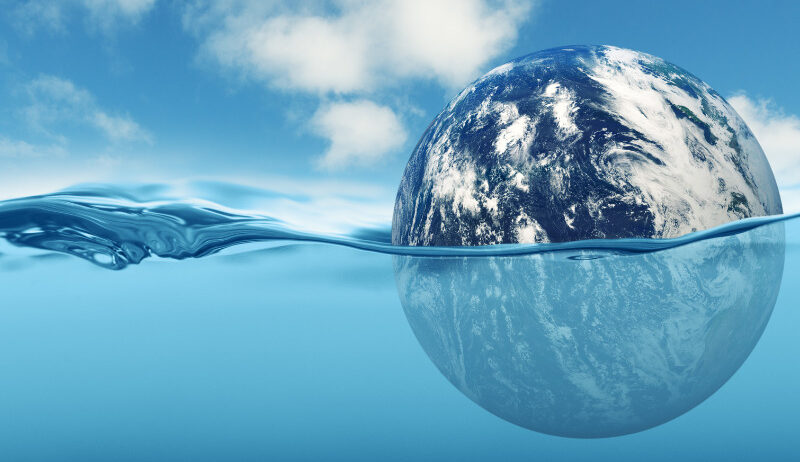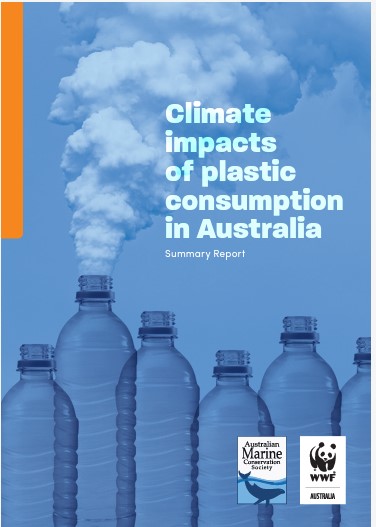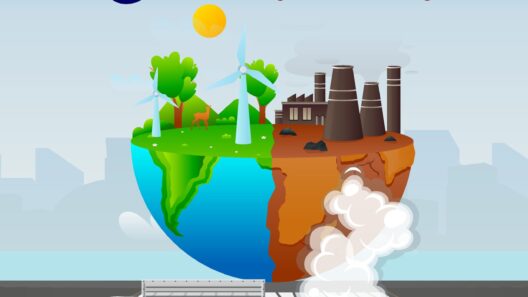When envisioning the world’s oceans, one might conjure images of vast cerulean expanses dotted with playful dolphins, shimmering schools of fish, and the gentle lull of waves kissing golden sands. However, this picturesque scene is increasingly marred by an insidious antagonist: plastic. As this synthetic material infiltrates marine environments, many proponents of environmental stewardship have raised urgent concerns linking plastic pollution to climate change. Does plastic in the ocean truly catalyze global warming? This inquiry necessitates a nuanced exploration, unfurling the myths while spotlighting the science that governs our planet’s ecosystems.
First, it is essential to delineate the relationship between plastic and global warming. In common parlance, plastic often is depicted as an environmental villain. Indeed, its ubiquity is alarming; plastic debris disrupts marine life, harms biodiversity, and enters the human food chain. However, attributing global warming directly to the presence of plastic in the oceans is a subtle misconception. While plastics themselves do not produce greenhouse gases, the processes of their production and disposal are decidedly carbon-intensive. The mythology lies in conflating oceanic plastic pollution with the atmospheric alterations that precipitate climate change.
The first stanza of this narrative begins with the lifecycle of plastic. Derived predominantly from fossil fuels, plastic’s genesis is intertwined with carbon emissions. From extraction to refinement, the plastic industry’s activities release considerable amounts of carbon dioxide and methane, potent greenhouse gases that entrench the planet in a warming trajectory. This is where the connection to global warming burgeons. The oxygen neither fish nor human can breathe becomes tainted, submerged in a lengthy consequence stream that begins far from the ocean.
Yet, as plastic languishes in marine environments, it does not emit greenhouse gases directly. Rather, it serves as a spatial misfit, intruding into habitats where it does not belong. Metaphorically speaking, if the ocean is a sacred sanctuary, plastic represents an unwelcome guest lingering past its invite. This lifeless wreckage disrupts the natural rhythms of marine ecosystems. Coral reefs, often deemed the rainforests of the sea, become suffocated by plastic, hindering their ability to conduct photosynthesis and produce the oxygen vital for life both underwater and above.
Even though plastics do not directly instigate climate change, they indirectly mar nature’s ability to combat it. Healthy oceans play a crucial role in regulating temperature, absorbing carbon dioxide from the atmosphere, and maintaining ecological balance. Hence, the detriment caused by plastics can weaken this formidable ally, allowing atmospheric carbon to rise unchecked. It may not cause global warming in isolation, but it indeed jeopardizes oceans’ resilience against it.
A corollary to this discussion hinges on the phenomenon of microplastics. When plastics degrade, they fragment into minuscule particles, infiltrating every conceivable niche in the ocean. This malaise of microplastics engenders a cascade of effects that reverberate through the food web. Marine organisms ingest these particles, and as they ascend the food chain—eventually reaching humans—global warming does not skip a beat. Instead, it amplifies. The microplastics denote a biogeochemical disruption, underscoring ecosystem frailty amidst an era of increasing environmental stressors.
The plight of marine biodiversity must also be a focal point when appraising the intertwining fates of plastic and climate change. As plastic obfuscates natural habitats, aquatic species face existential threats, pushing them towards extinction. A diminished diversity curtails ecosystems’ resilience to change, exacerbating impacts from climate change, such as shifting ocean temperatures and rising sea levels. The paradox lies in the weakening of our oceans—once a bastion against climate instability, they now falter under the weight of human negligence.
These nuances escape simplification, and an oversimplified narrative can breed apathy; hence, elucidating both the direct and indirect ramifications of plastic on environmental health is paramount. The myth that plastic directly causes global warming may linger, but the underlying truth reveals a more intricate relationship—one woven with threads of production, consumption, and the fragile resilience of marine life.
In addressing the global challenge of climate change, it is crucial to implement comprehensive measures that address the plastic crisis. Strategies could range from increasing recycling capabilities, exploring biodegradable alternatives, to implementing robust policy measures aimed at curbing plastic production at its source. Education plays a fundamental role, as understanding the complexities of the issue empowers individuals to cultivate more sustainable habits.
Ultimately, climate change will not disappear merely by removing plastics from the oceans. True action involves fostering a paradigm shift—an awakening of collective consciousness regarding our environmental stewardship. It demands bold, multifaceted approaches that not only seek to address the plastic pollution crisis but also reinforce the vital role oceans play as the planet’s climate stabilizers.
This conversation about plastic in the ocean must evolve. Instead of remaining ensnared in simplistic dichotomies of good versus evil, we must embrace the intricate web of interactions influencing planetary systems. Only through deliberate actions can humanity hope to assuage the impacts of both oceanic plastic and climate change, catalyzing a renaissance for our beleaguered blue planet.







